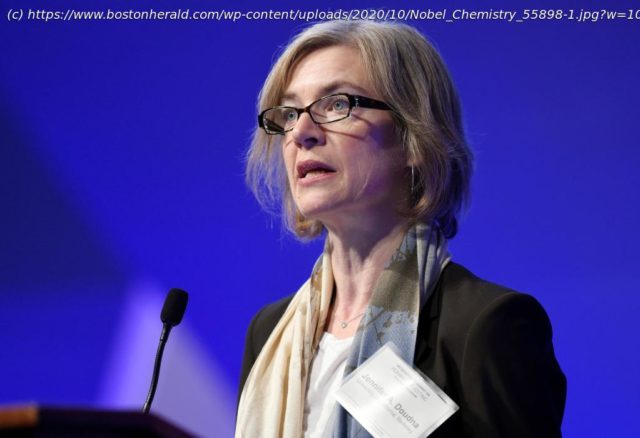Two scientists won the Nobel Prize in chemistry Wednesday for developing a way of editing genes likened to “molecular scissors” that offer the promise of one day curing inherited diseases.
By MARILYNN MARCHIONE, CHRISTINA LARSON and DAVID KEYTON STOCKHOLM (AP) — The Nobel Prize in chemistry went to two researchers Wednesday for a gene-editing tool that has revolutionized science by providing a way to alter DNA, the code of life — technology already being used to try to cure a host of diseases and raise better crops and livestock. Emmanuelle Charpentier of France and Jennifer A. Doudna of the United States won for developing CRISPR-cas9, a very simple technique for cutting a gene at a specific spot, allowing scientists to operate on flaws that are the root cause of many diseases. “There is enormous power in this genetic tool,” said Claes Gustafsson, chair of the Nobel Committee for Chemistry. More than 100 clinical trials are underway to study using CRISPR to treat diseases, and “many are very promising,” according to Victor Dzau, president of the National Academy of Medicine. “My greatest hope is that it’s used for good, to uncover new mysteries in biology and to benefit humankind,” said Doudna, who is affiliated with the University of California, Berkeley, and is paid by the Howard Hughes Medical Institute, which also supports The Associated Press’ Health and Science Department. The prize-winning work has opened the door to some thorny ethical issues: When editing is done after birth, the alterations are confined to that person. Scientists fear CRISPR will be misused to make “designer babies” by altering eggs, embryos or sperm — changes that can be passed on to future generations. Much of the world became aware of CRISPR in 2018, when Chinese scientist He Jiankui revealed he had helped make the world’s first gene-edited babies, to try to engineer resistance to infection with the AIDS virus. His work was denounced as unsafe human experimentation, and he has been sentenced to prison in China. In September, an international panel of experts issued a report saying it is too soon to try such experiments because the science isn’t advanced enough to ensure safety.






